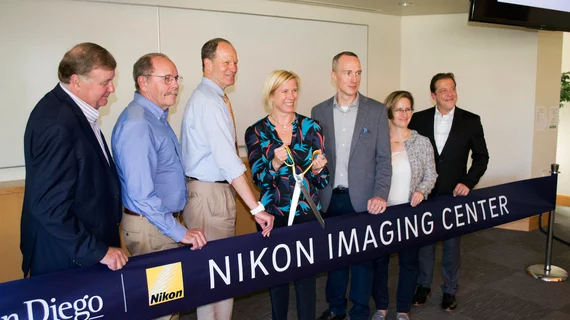Nikon, UC San Diego open collaborative microscopic imaging center
The third Nikon Imaging Center in the U.S. for collaborative microscopy imaging opened at the University of California, San Diego on Thursday, Sept. 13, according to a university press release. The center houses more than $2.5 million in imaging equipment, allowing researchers to work to develop new education programs.
It will also provide researchers with exclusive access to point-scanning and field-scanning confocal, high-content, total internal reflection fluorescence and wide-field fluorescence microscopes among other imaging tools.
“In addition to offering standard imaging techniques, the center has two microscopes that can image with what is called ‘super-resolution,’ which allows us to resolve structures with two to 10 times the precision that standard microscopes can achieve,” said Eric Griffis, PhD, the center’s director, in a prepared statement.
The UC San Diego facility follows similar imaging sites established in collaboration with Nikon at Harvard Medical School and Northwestern University Feinberg School of Medicine in Chicago, along with international efforts at Oxford University and Hokkaido University in Japan.
"UC San Diego’s partnership with Nikon is very exciting because it will enrich both the scientific research capabilities and educational activities on campus," said Samara Reck-Peterson, PhD, a professor of cellular and molecular medicine at the UC San Diego School of Medicine, in a prepared statement.

